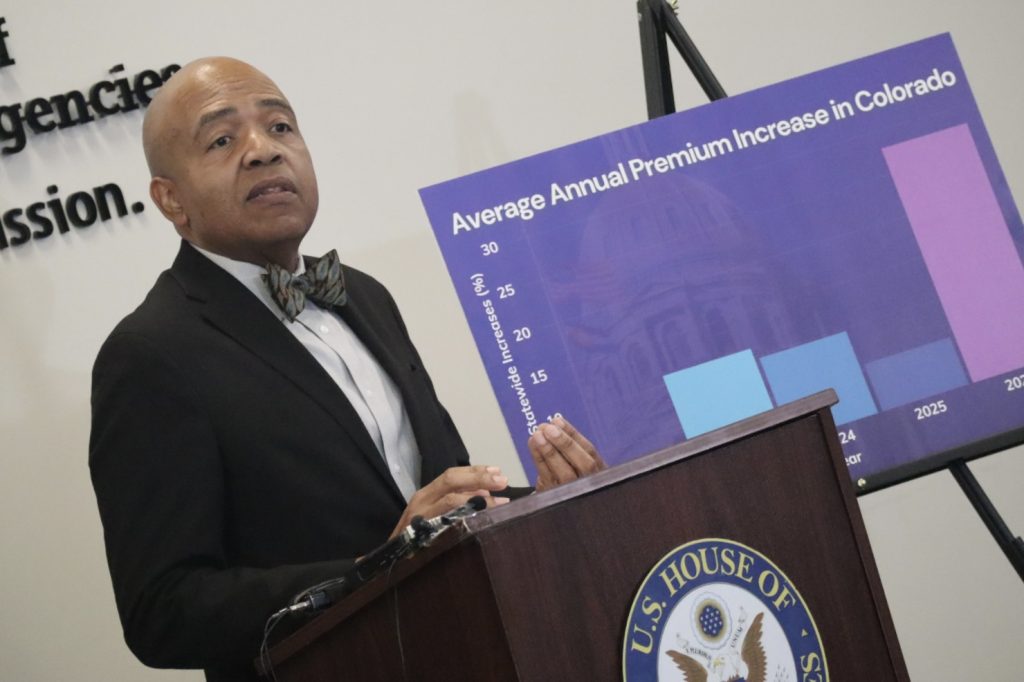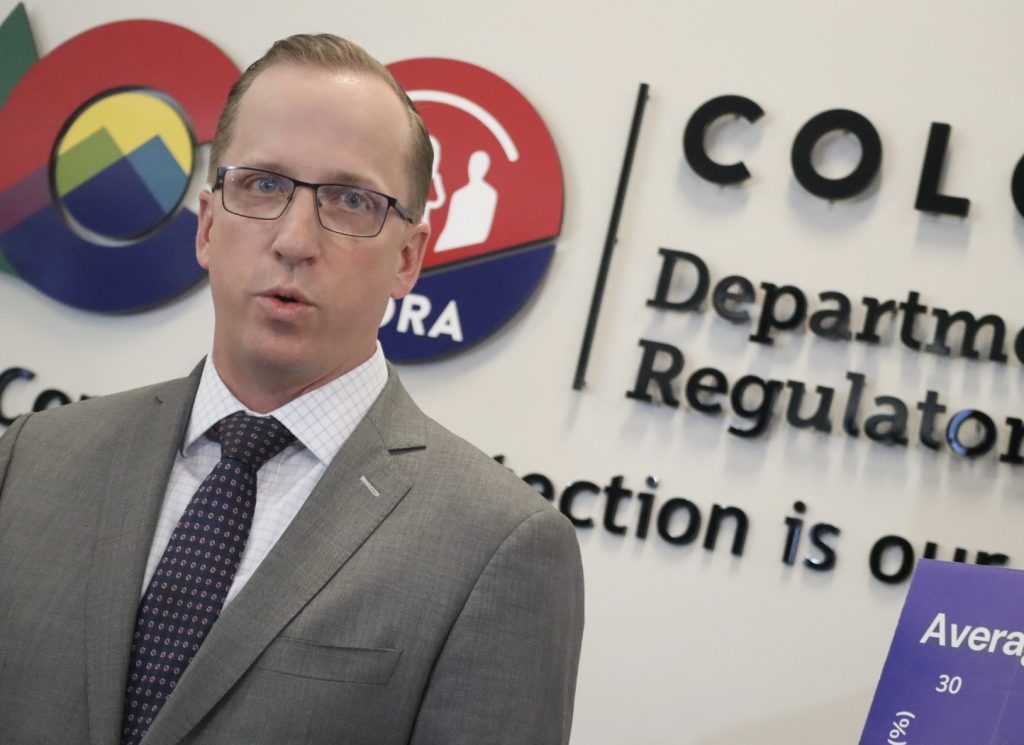Colorado officials say it’s not too late for Congress to extend health insurance subsidies as open enrollment looms
Insurance plans on Connect for Health Colorado, the state-run marketplace, will be available starting on Nov. 1. Rates are projected to be much higher without a renewal of federal tax credits.

Robert Tann/The Aspen Times
With Republicans and Democrats in Congress at an impasse over extending soon-to-expire health care subsidies, sticker shock for potentially hundreds of thousands of Coloradans who shop for their own insurance plans is drawing nearer.
Starting Nov. 1, Coloradans will be able to select their health insurance plans for next year on Connect for Health Colorado, the state’s individual marketplace, which enrolls about 300,000 people. But without a renewal of Affordable Care Act subsidies, rates could double or triple for some households in 2026.
Despite open enrollment being less than two weeks away, state officials say there’s still time for Congress to extend the subsidies before those higher insurance costs are locked in.
“It is not too late,” Connect for Health Colorado CEO Kevin Patterson told reporters on Monday during a news conference in Denver. “We stand at the ready, as the state (marketplace) exchange, to be prepared to move heaven and earth to get this through as quickly as (Congress) can get something done.”
State leaders, including Gov. Jared Polis, and health care advocates had been pushing for months for a renewal of the federal subsidies, known as the Enhanced Premium Tax Credit, which are set to expire on Dec. 31.
Many wanted to see that extension passed before the end of September, fearing that waiting any longer would make it too difficult for insurers to adjust their rates ahead of open enrollment in November.
During an August special legislative session, state lawmakers approved a stopgap measure to pump additional state funding into insurance subsidy programs, which they believe could help blunt the premium increases next year.
That bill will only take effect, however, if Congress doesn’t extend the tax credits, and it would only be a one-year solution. Lawmakers said their measure still won’t be enough to prevent insurance costs from spiking.
Democrats in Congress have said they’ve been demanding negotiations with Republicans on the issue, but no serious discussions have materialized.
That drove lawmakers into the government shutdown that began on Oct. 1, with Democrats largely refusing to vote for a Republican-proposed funding bill that doesn’t include an extension of the tax credits. GOP lawmakers have said they’re open to exploring an extension but only after the government reopens.
As a result, state insurance markets are scrambling to prepare for a range of scenarios. Patterson said Connect for Health Colorado will be able to adjust plans depending on whether the tax credits are renewed before or after open enrollment, or even as late as the beginning of next year.
“Will it be clunky? I would imagine so, because we normally are done with this work in September,” Patterson said. “So we’re way behind that schedule. We just have to be prepared to make the change as quickly as we can and try to communicate to our constituents once we have an answer, ‘How do we tell them what they need to do and what those steps are?'”
Colorado Division of Insurance Commissioner Mike Conway said every year, the open enrollment period has been “messy to some degree.”
“We know how to deal with messy,” Conway said. “What we can’t deal with, what we don’t know how to deal with, is an abject disaster, and that is what’s going to happen if these tax credits don’t get extended.”

Without an extension of tax credits, premiums are projected to rise on average by 28% statewide next year, and 38% on the Western Slope. The true cost impact could be much greater, however, for middle-income households, particularly in rural and resort areas.
That’s because the Enhanced Premium Tax Credits, which were first passed by congressional Democrats in 2021 before being renewed in 2022, extended insurance subsidies to households making over 400% of the federal poverty line. On the Western Slope, that translates to $128,600 for a family of four.
Once the tax credits expire, that family will experience both higher premium rates and a loss of subsidies, which the state’s insurance division projects could increase annual insurance costs by $25,000 a year starting in 2026.
A handful of House Republicans, alongside some moderate Democrats, introduced legislation last month to extend the tax credits for another year. U.S. Rep. Jeff Hurd, a Grand Junction
Republican, is a sponsor of the measure, though he wants to see the health insurance issue dealt with after government funding is approved.
Hurd was one of 13 House Republicans who signed onto an Oct. 21 letter to Republican House Speaker Mike Johnson urging him to make the health insurance issue a top priority once the shutdown ends.
“Allowing these tax credits to lapse without a clear path forward would risk real harm to those we represent,” the letter states. “Nevertheless, we must chart a conservative path that protects working families in our districts across the country who rely on these credits.”
The House Republicans also called for “significant reforms” to make the tax credits more “fiscally responsible and ensure they are going to the Americans who need them most.” Some Republican lawmakers have floated ideas like an income cap for the tax credits.
It’s unclear where Democrats may be willing to compromise, though most said they opposed a one-year extension and would prefer at least a multiyear renewal. Most have also refused to budge on their position that the tax credits should be included as part of reopening the government.
“I think this message will get through to the Republicans.” U.S. Sen. John Hickenlooper, a Colorado Democrat, told reporters last week during a virtual news conference.
“We’re past the point where we can say, ‘Oh, well, let’s negotiate it,’ or they’ll give us another empty promise,” Hickenlooper continued. “We want to reopen the government, but at the same time, we want to make sure that we keep costs as low as possible for working people.”

Support Local Journalism

Support Local Journalism
Readers around Glenwood Springs and Garfield County make the Post Independent’s work possible. Your financial contribution supports our efforts to deliver quality, locally relevant journalism.
Now more than ever, your support is critical to help us keep our community informed about the evolving coronavirus pandemic and the impact it is having locally. Every contribution, however large or small, will make a difference.
Each donation will be used exclusively for the development and creation of increased news coverage.










